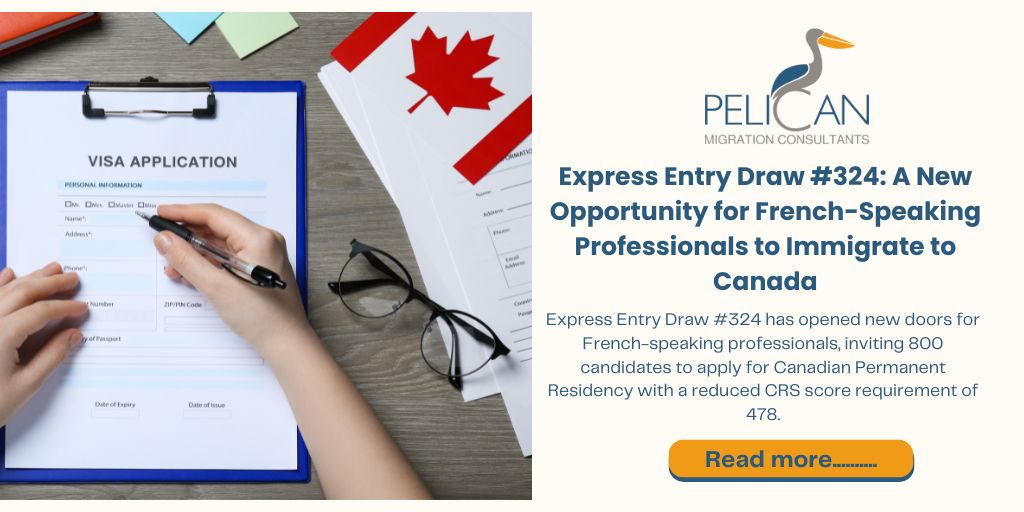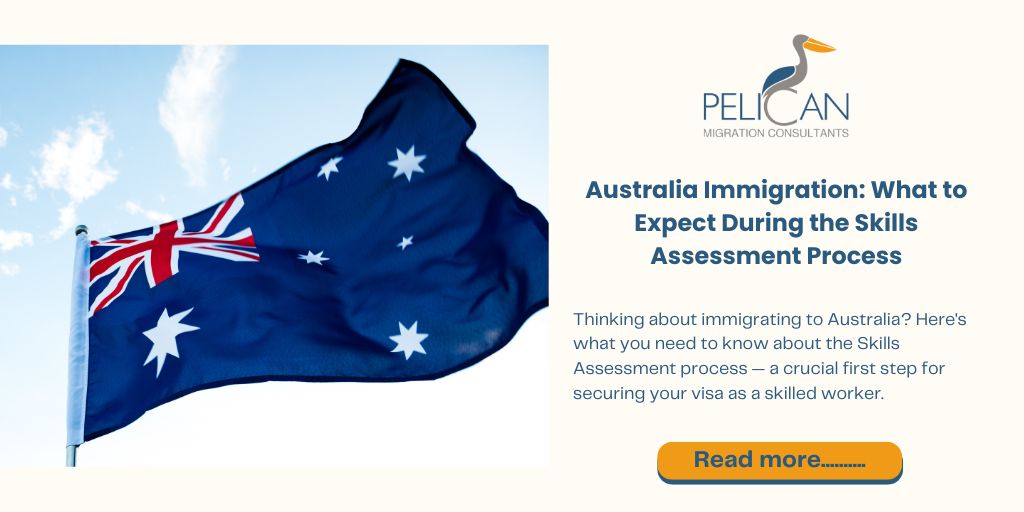
Express Entry Draw #324: A New Opportunity for French-Speaking Professionals to Immigrate to Canada
In a noteworthy move to strengthen its labor market, Immigration, Refugees, and Citizenship Canada (IRCC) conducted Express Entry draw #324 on November 15, 2024. This category-based draw specifically targeted French-speaking candidates, offering 800 invitations to apply for Canadian Permanent Resident (PR) visas. With a lowered Comprehensive Ranking System (CRS) score of 478, this draw represents an excellent chance for French-speaking professionals to begin their journey toward Canadian residency.
Express Entry Draw #324 Overview
The latest Express Entry draw underscores Canada’s commitment to attracting skilled French-speaking immigrants to foster economic growth and cultural diversity. The details of the draw are as follows:
Draw Details:
|
Draw Date |
Number of Invitations Issued | Minimum CRS Score |
|
November 15, 2024 |
800 | 478 |
This draw forms part of IRCC’s larger initiative to align the immigration process with Canada’s labor market needs, inviting skilled individuals who can contribute meaningfully to the country’s economic and social fabric. Canada’s economy is flourishing, and opportunities for skilled workers are abundant, making this draw a vital step for prospective immigrants.
Category-Based Selection Rounds Explained
In 2024, IRCC introduced category-based selection rounds as a means of tailoring the immigration process to meet specific labor demands. These targeted rounds allow for precise selection criteria, helping address labor shortages in key sectors. The six categories identified for these rounds include:
- French Language Proficiency
- Healthcare Professionals
- Skilled Trades
- Technology Workers
- Agricultural Workers
- Early Childhood Educators
The emphasis on French-speaking candidates is part of Canada’s broader plan to bolster Francophone communities outside Quebec, ensuring cultural diversity and supporting Canada’s bilingual identity.
Focus on French-Speaking Candidates in the 2025-2027 Immigration Plan
Canada's 2025-2027 Immigration Levels Plan highlights the nation’s focus on welcoming more French-speaking immigrants. The targets set for French-speaking permanent residents are as follows:
- 2025: 8.5% of total permanent resident admissions
- 2026: 9.5% of total permanent resident admissions
- 2027: 10% of total permanent resident admissions
These targets illustrate the Canadian government’s intent to gradually increase the number of French-speaking immigrants, contributing to the growth and vibrancy of Francophone communities nationwide. This strategic move also addresses the labor market’s need for diverse language skills, reinforcing Canada's bilingual ethos.
Steps for Prospective Applicants
For those who did not receive an invitation in the recent draw, there are various ways to increase your chances in future draws:
- Improve Your Language Skills: Enhancing your proficiency in both English and French can significantly boost your CRS score.
- Gain Additional Work Experience or Education: More qualifications can increase your overall score and improve your competitiveness.
- Seek Provincial Nominations: A provincial nomination can add 600 points to your CRS score, providing a significant advantage.
- Stay Informed on Policy Changes: Keeping up with immigration updates helps you adapt your profile to align with current trends.
- Plan Your Application Carefully: Ensure all necessary documents are complete and updated before submission.
FAQs:
1. What is the minimum CRS score required for the latest draw?
The minimum CRS score for Express Entry draw #324 was 478, making it accessible for French-speaking candidates with strong profiles.
2. How can I increase my CRS score for future draws?
Improving language skills, obtaining higher educational qualifications, gaining more work experience, and seeking provincial nominations can boost your CRS score.
3. What benefits do French-speaking candidates have in Canada’s immigration process?
French-speaking candidates are prioritized in category-based draws and contribute to Canada’s target of increasing Francophone communities outside Quebec.
4. How many French-speaking candidates does Canada plan to invite by 2027?
By 2027, Canada aims for French-speaking candidates to constitute 10% of all permanent resident admissions.
5. What are the main categories for the Express Entry category-based draws?
The categories include French language proficiency, healthcare professionals, skilled trades, technology workers, agricultural workers, and early childhood educators.
How Pelican Migration Consultants Can Help You
Pelican Migration Consultants offers comprehensive support for skilled professionals looking to migrate to Canada, especially under category-based Express Entry draws. Here are five ways we can assist:
- Profile Assessment and Enhancement: We evaluate your profile to identify strengths and areas for improvement to ensure you meet the CRS score criteria.
- Guidance on Language Proficiency: Our experts provide tailored resources to help you improve your language scores, increasing your chances of selection.
- Document Preparation and Submission: We assist in compiling and submitting all required documents, ensuring compliance with Canadian immigration regulations.
- Strategic Advice for Provincial Nominations: We guide you on how to secure a provincial nomination, giving your application a significant boost.
- Continuous Updates and Support: Our team keeps you informed on the latest Express Entry changes and offers real-time assistance throughout your immigration journey.
Conclusion
At Pelican Migration Consultants, we understand the complexities of Canadian immigration. Our dedicated team is committed to guiding you through every step, making your journey toward Canadian residency as seamless as possible. Reach out to us for personalized assistance and take the first step toward your new life in Canada.


